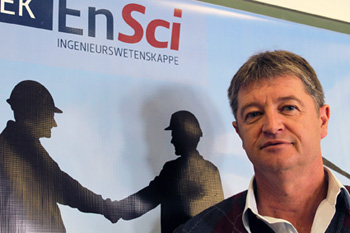Latest News Archive
Please select Category, Year, and then Month to display items
10 March 2022
|
Story Anthony Mthembu
|
Photo Unsplash
 The No Student Hungry team gearing up to start distributing food parcels to the selected students.
The No Student Hungry team gearing up to start distributing food parcels to the selected students.
The UFS is one of the many institutions of higher learning where food insecurity is an active issue. However, the
No Student Hungry Programme is one of the initiatives launched at the university to assist in fighting food insecurity at the institution.
The purpose of the programme
Since its inception in 2011, the initiative has assisted many students in acquiring a healthy meal. Additionally, the Food Environment Office also hands out food packages, so that students can continue to achieve academically. “We are trying to develop a healthy environment for students and make it easier for them to have a nice and healthy meal,” stated Annelize Visagie, who heads the Food Environment Office at the UFS. The Food Environment programme is spread out on all three campuses, each with its own facilitators. Furthermore, the programme mainly caters for students who are not funded by the National Student Financial Aid Scheme (NSFAS) but who are excelling academically. The abovementioned students apply for assistance online, and a list is then drawn up of students who receive assistance for the year.
Alternative solutions to keep the initiative running
On the Bloemfontein Campus, the No Student Hungry Programme will be catering for 200 students in the 2022 academic year, assisting them with a daily nutritious meal. Additional food parcels are also handed out to provide further assistance. “We give food parcels to the students on the list every Tuesday and Thursday at the Thakaneng Bridge,” Visagie highlighted. However, she argues that catering for the student population through this programme can be a challenge, as the demand for assistance is growing rapidly and the ability to assist is limited. The programme relies on partnerships and sponsors to assist the student body. In fact, the coordinators of the programme currently have a memorandum of understanding with Tiger Brands according to which they deliver around 100 food parcels for distribution.
In addition, the coordinators have put in place alternative measures to ensure that they can provide more food to students. “The
Kovsie Act Office, in partnership with the
Department of Sustainable Food Systems and Development, has started a food garden where healthy and nutritious produce are grown, in order to add value to the distribution,” she indicated. Although the programme can only assist to a point, students who are in desperate need of assistance are never turned away. In fact, the
Social Support Unit at Thakaneng Bridge usually assists students with food vouchers for a maximum of four days.
A commitment to teaching healthy eating habits
The programme is not only committed to curbing food insecurity, but also to ensuring that students have a healthy and balanced diet. As such, a booklet is being issued by the
Department of Nutrition and Dietetics in collaboration with the Department of Sustainable Food Systems and Development, which contains ways in which students can make a healthy meal using some of the ingredients offered in the food parcels.
“We want to teach students how to eat healthy in the cheapest way, because they don’t have a lot of money to buy expensive food products,” Visagie argued.
UFS provides an alternative route to a BEng degree
2014-06-04
 Mr Louis Lagrange Mr Louis Lagrange
Photo: Leonie Bolleurs |
The university is very excited about the establishment of a new study field at Kovsies – a BSc degree with majors in Physics and Engineering subjects. The course is presented in the Faculty of Natural and Agricultural Sciences on the Bloemfontein Campus.
Project EnSci was established at the UFS at the beginning of 2014. Twelve first-years and four second-years enrolled for the course this year.
“We replace the non-core Physics subjects with Engineering subjects. We also present all specialist Engineering subjects ourselves,” says Louis Lagrange, project manager of Projec EnSci – Engineering Science.
“There isn’t enough space at universities in South Africa to accommodate all students who are interested in engineering. The UFS course can thus be considered a fundamental engineering course. It equips a student in such a way that they will be able to specialise in various disciplines,” he says.
After completion of the three-year BSc degree at the UFS, students may choose to:
• graduate with a BSc degree majoring in Physics and Engineering subjects and enter the professional world.
• study further for an honours, master’s or doctoral degree in Physics.
• apply to register for a second degree – BEng or BScEng (for two additional years) at another university recognising the BSc degree with majors in Physics and Engineering Science. Acceptance is subject to certain requirements.
Matriculants interested in this field, must follow the application procedure of the UFS before 30 September 2014 and achieve the following in the final NSC or equivalent examination:
• an AP score of 34 or more is strongly recommended,
• cumulative AP score of 13 or more in Mathematics and Physical Science,
• completion of NBT tests and
• language of instruction – 4 or more.
These prospective students also need to complete and submit an application form. For more information contact us at engineeringsubjects@ufs.ac.za